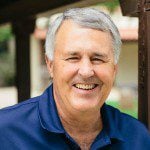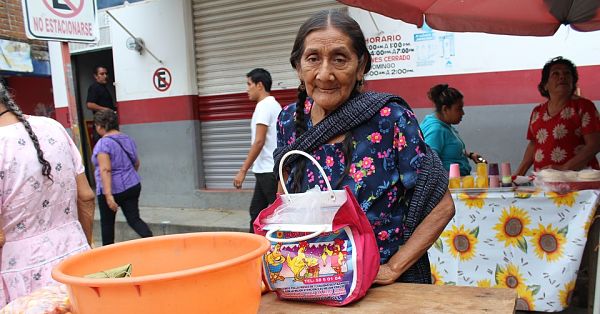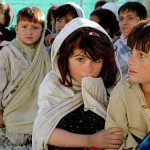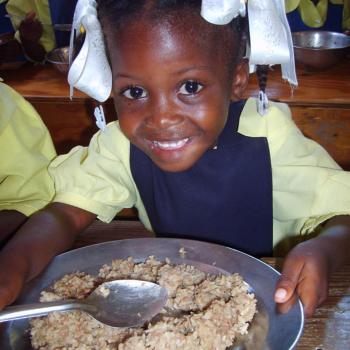by Gary Edmonds
How does a little girl who grows up in a place where no one believes girls should go to school end up becoming a doctor and help transform her hometown?
Mayra Mamani was 7-years-old when her carpenter father, mother and five siblings moved to a rural area of Bolivia called Horno Ck’asa during hard times. Mayra remembers arriving at a desolate place with no clean water, electricity or sewage services.
“The neighborhood was dirty, there were only dusty streets, the houses were made of mud-bricks and many young people were at the streets with no dreams and no personal vision.” Mayra, now 23, recalls. In this male-dominated culture, girls were usually not sent to school at all. Mayra could not have imagined her own graduation, let alone a graduation for the entire Horno Ck’asa community.
But that is Food for the Hungry’s goal when we partner with communities for 10-15 years, making a finite commitment with a strategic framework, so that the entire community “graduates” and can sustain their own development.
With tragedy owning today’s headlines, it’s important we remind ourselves that hope is alive for millions of children, thanks in large part to so much good work being done by many faith-based organizations. Child death and global poverty have both been cut by half. The elevation of girls and women is a key factor in improving health and economies in communities around the developing world.
Mayra participated in Food for the Hungry’s child sponsorship program in Horno Ck’asa. It was clear from the start that Mayra had great potential — gifts that would have otherwise been overlooked. At age 12 she received a Food for the Hungry scholarship to learn baking skills and study accounting basics for a year and a half, along with four other girls. After finishing the courses, they started a micro-business selling pastries. This was the beginning of a close relationship between Mayra and our Food for the Hungry staff in Bolivia.
But none of us does it alone. When Food for the Hungry begins a project in a new area, the first step is to collaborate with the community to collect data about the population, poverty, housing, health services, infrastructure, education, transportation and church. We listen to community organizations and local leaders who identify the key community needs and offer ways to best to address them.
In Horno Ck’asa, we directed efforts toward education, malnutrition and healthcare, housing, commerce and leadership training. Half of the families in the community lived in extreme poverty. Sixty percent of children had parasites and were malnourished, without a health center for the entire population.
Add to that inadequate resources for teachers to provide effective schooling, and parents struggling to simply survive, and Mayra could very easily have been that global statistic: a girl who didn’t make it through grade school, chronically ill, suffering from stunting (permanent cognitive disabilities due to under-nutrition,) and trapped in the same cycle of poverty that has defined her family for generations.
But her story turned out much differently. Mayra not only finished high school, she went on to study medicine at the state university. Even when she aged-out of the Food for the Hungry sponsorship program, she continued volunteering to help make her community a better place for other children and families. “Food for the Hungry helped me a lot; the staff encouraged me constantly,” she says. “I used to be very shy, and they helped me to overcome my fears and barriers that prevented me from reaching my goals.”
Thousands of miles north, Sami made her first mission trip was at age 13, to Horno Ckasa. “It was unlike anything I had ever seen or felt before. God used that trip to turn my focus outside of myself, to open my eyes to his love for the underprivileged and unprotected of the world,” she says. Like Mayra, Sami is also studying medicine as a 20-year-old pre-med at the University of New Mexico because of this mission work.
Central to our Food for the Hungry message is that the plan God has for all our lives is to act in leadership with honesty, responsibility and respect for the community; spiritual development is an important part of our strategic plan.
We helped run campaigns against domestic violence and provided home counseling. We educated parents about cleanliness, because among the least expensive and most effective ways to prevent chronic illnesses is through hand-washing, hygiene and dental care. Working with the local church, we conducted trainings for church leaders on issues of integral development, discipleship and how young people are influenced by gangs, crime, drugs and alcohol. We created youth clubs called More Than Conquerors that modeled leadership with biblical principles and supported kids in school subjects in which they were struggling.
A lot can happen in 10 years.
The school dropout rate in Horno Ck’asa for both high school and grade school is down and better health is up. Eighty percent of children under age five once suffered recurrent bouts of diarrhea and respiratory problems, contributing to chronic under-nutrition and stunting. Now diarrhea is down by over two thirds and respiratory problems by more than half.
Horno Ck’asa is no longer the poor, dusty neighborhood it used to be. The community of Horno Ck’asa has proudly graduated from needing assistance into sustainable independence.
“Food for the Hungry is [about] team-work,” Mayra says. “Its holistic approach covers all areas of our lives. My dream is to become a specialist and to work at the hospital and open a clinic to help the poor people.” Perhaps one day she’ll be joined by another girl who grew up with a view of Horno Ck’asa. When she finishes her medical studies and graduates, like Mayra, Sami plans to become a medical missionary.
Mayra says it best: “They made me realize that we are able to change our history.”

Gary Edmonds is President and CEO of Food for the Hungry, a relief and development organization of Christian motivation that works in Asia, Africa and Latin America.














